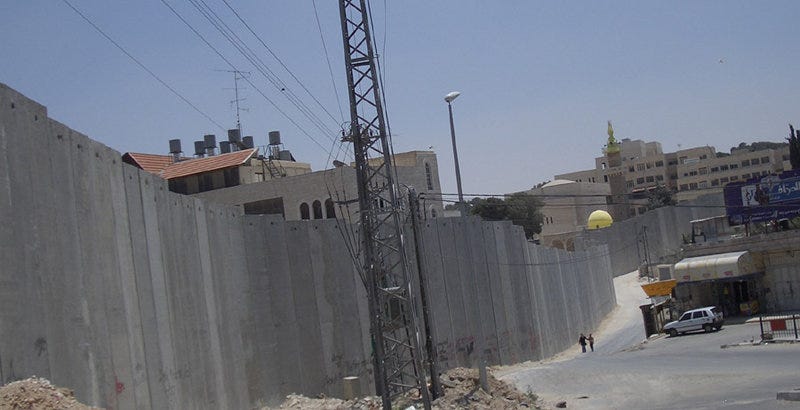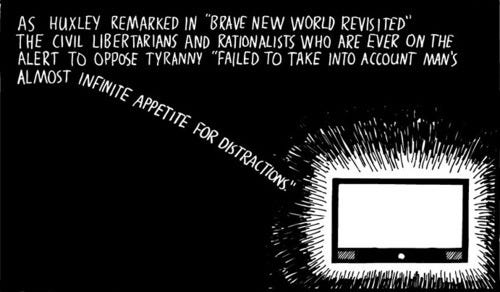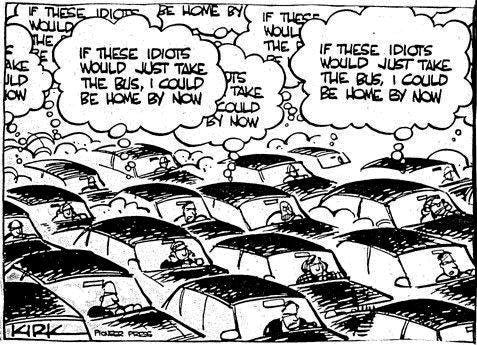What the haters of 15-minutes cities get REALLY wrong
and what you should do about it, instead
(if your email client truncates this email, click on "View entire message” to read it all!)
What is a 15-minutes city?
Answer 1: a 15- or 20-minutes city is a way to design or rebuild neighborhoods or whole cities that places all the daily, ordinary needs of their residents, from shopping to primary school, public parks, sports or medical checks, within a 15-minute walk or bike ride from their front door. These features are visible in the diagram below, from Melbourne through the Cities Forum
Answer 2: the target of a whole lot of lunatic, or at least really misguided, denounces and conspiracy theories
In this article, I explain how and where, exactly, those denounces are misguided, by making a couple of points that (as far as I know!) have not been covered and linked enough yet.
The evil masterplan behind 15-minutes cities
Here is my very own, personal, surely incomplete summary of all the denounces of 15-minute cities I have seen online:
15-minute cities are prison cities, in which you will be limited in how far you can go
"THEY" plan to force everyone out of rural and suburban areas and into those 15-minute prison cities, by creating environmental catastrophes, increasing real estate taxes or making expensive home upgrades mandatory
15-minute cities go hand in hand with digital IDs and cashless CBDC money, to monitor and track everybody, all the time
thanks to that centralized control of both position and ability to use money, everything everybody does becomes both controlled and controllable. If you do something the systems doesn't like, from refusing vaccines to posting the wrong things online, all your money is instantaneously frozen and you can't leave, because if you do, you get fined.
starting in 2025, all new cars are required to have externally-operated kill switches, so if you go too far away from the 15-minutes prison they locked you in, they turn off your car
making it easier to stay closer to home opens the door to totalitarian regimes that forbid everybody to leave their "home area"
ANY limit to one's God-given right to drive his car is by definition an ultra-socialist nightmare worst than North Korea period. Nuff Said! Heck, why do I even need to say it? What has this world come to?

Sources, please?
As far as I can tell, the only piece of concrete, plausible evidence for all the denounces above may be these two sentences in a 19-pages paper published in 2021 by Carlos Moreno and others, titled "Introducing the “15-Minute City”: Sustainability, Resilience and Place Identity in Future Post-Pandemic Cities (2021)" (emphasis mine):
the Smart City concept is based on the success of digital revolution... [and is] tied to availability of a rich interconnected array of Internet of Things (IoT) devices that have the capacity to collect, and send data to a centralized network, where this data is then computed, analyzed and distributed, in real-time, to respective urban department for actions
At the core of the 15-Minute City is the availability of different amenities and urban services; which with technology, would render it easier to use available data on different aspect to ensure novel urban planning to ensure optimal service delivery within intended areas of proximity.
What control and surveillance REALLY need, or don't
The 15-minute city is denounced as an all-digital, drop-in replacement of the only proven way to really "limit how far you can go", which is not digital at all:
There are already plenty of articles that disprove the "15-minutes is slavery" paranoia (see Reading List below), but they just stop there, instead of focusing on how the real issues behind this particular paranoia are linked, or not.
You can easily judge how much all those denounces miss what should be their real target, by considering two things.
First of all, zoning, redlining, gentrification and excessive bureaucracy that makes life uselessly harder for everybody but the richest do exist and are bad. No question about that. Heck, how could I deny, for example, the "expensive home upgrades" grievances, in the same days in which my own country is fighting the EU Green Home Directive (EPBD) for, let's say for brevity, half concrete, half questionable reasons?
Fact is, such practices have been around for centuries, well before digitization, even at the peak of car-centered culture and planning. Whenever they are bad or unfair, they should be fought because they are bad or unfair, not only when they dare take over our beloved smartphones for their evil deeds.
Nobody needs to put you in a "15 minutes prison"
Yes, the first popular versions of the "smart" city concept were, and remain, elitist, digital-first solutionist tools, that would also be very easy to turn into nightmarish guardians. And they were hardly smart anyway, as I have commented many times. And yes, that specific paper by Moreno does not help, when it tightly links 15-minutes cities to "digital revolutions" and "centralized, real-time analysis of data".
Reality is different, though. Namely, reality is that on one hand, the sooner 15-minutes cities happen with the right technology and criteria, the sooner their residents will get their health, choices and time (that is, their real freedom) back. On the other hand, there is my second and main point, the one that as far as I know the debunkers of 15-minutes city conspiracy theories do not make clear enough.
That point is really simple: digitally-powered liberticidal, dehumanizing regimes have no need whatsoever of "15-minutes anything" to exist and get funding to do all the purely digital bad things denounced in that list. None at all. Never had, never will. Mixing the two things only makes would-be dictators happier.
The reality is that as things stand today, all those bad hings are already happening in one form or another, or will happen, even if any plan for 15-minutes cities were scrapped tomorrow.
The reality is that the kind of total control that 15-minutes conspirationists fear is already well under way, just in the Huxleyan way, instead of the Orwellian one. That is, not by explicit terror and police checkpoints of any kind, but by combining with induced needs many analog policies and purely physical restrictions that we've been trained to take as natural.
The reality is that all is needed to lock everybody in their neighborhood as much as possible is:
aggressive zoning and other completely non-digital policies
destruction of public transit that would make it affordable to visit other "zones", or work there
forcing the working poors to spend all their time to work, commute or waste hours to reach a doctor or buy groceries outside neighborhoods that are just food deserts (but if they'd do it driving... Yay, that's freedom!)

keep running (also by proposing useless countermeasures instead of real, much simpler ones) addictive social media or reactionary "metaverses", that promise everybody their very own 15-minutes of fame, but quell any desire to leave home

Read again those denounces. The fourth one is the most ridiculous because, as realistic and serious as it is, all "THEY" need to deploy it is purely digital infrastructures, and people already dumbed down by decades of cuts in education budgets, plus the likes of YouTube and TikTok. Extra spending for bike lanes or public parks would make the plan more expensive, without incrementing its efficiency of one bit.
Most of that stuff is already happening, and you are already paying for it, and even enlisting your children in it, if you outsorce them to smart voice assistants or to smartphones, 5 or more years before they're capable to bear them. Oh, and even to schools whose main policy is (expensive) datafication of students.
Conflating all these trends with the 15-minute city only makes you bark up the wrong tree and keep the wrong people happy.
Car restrictions? So what?
The "you'll get my car when you pry it from my cold, dead hands" denounce deserves its own paragraph.
Limits to free circulation of cars have been a fact of life in many parts of many cities, for decades now, everywhere. Surely, some administration may have questionable reasons to approve such restrictions. But this does not cancel their other, much more solid bases in pure apolitical geometry.
Of course, if you can afford to live and drive only in those wonderful landscapes crossed by scenic, never-congested roads that exist only in car commercials, you need a car, and nobody would need or care to limit your driving. The same is true for most residents of real rural areas.
Still, in THIS reality "55% of the world's population lives in urban areas, a proportion that is expected to increase to 68% by 2050" for historical factors much older than digitization, and stronger too.
In this reality, there is no physical space for personal cars for every urban dweller, regardless of layout, density or governance of cities. In 2023, it is well known that adding more roads to keep cars roaming free in or around cities just does not fix traffic congestion, but makes it worse, and the same is true for more parking spaces that just cause more driving. Keep refusing any restriction to driving your own car, and all you'll get will be 15 WASTED minutes, just to enter or exit public parking spaces, every time you need them.
In other words, if ownership and usage of private cars usage will decline is because:
there are too many of us in cities to have enough space for the corresponding number of personal cars
cars will be more expensive for more people
driving had lost its cool for young Americans already 12 years ago, and the same is happening in other countries
car "kill switches" make owning a car less glamorous no matter what, everywhere
The last point is the one that should be the most obvious. So-called "Smart Cars" that are not yours and can be blocked remotely already exist and will exist anyway, regardless of 15-minutes cities, as long as people will be so dumb to buy them, in spite of excellent reasons like this or this to not do it.
Besides, in and around cities, replacing car driving with as much transit, biking and walking as possible is just healthier. In the Netherlands, "biking habits help prevent about 6,500 premature deaths each year".
The REAL 15-minute cities
I have just explained half of the reasons why 15-minute cities and digital control (or lack thereof) are largely independent issues, that must remain separate instead of merging them into one conspiracy theory.
The other proof is the fact that contemporary, very good approximations of 15-minutes cities have been already built, and kind of work, without any big digital infrastructure custom-built for them. They are places like Barcelona's superblocks, the "Four Skyscraper" in Frankfurt, Parco Leonardo outside Rome, Azabudai Hills in Tokyo or, of course, Paris. If one actually read those articles, starting from the one about Paris, two things would stand out: first, there is almost nothing digital in the corresponding 15-minutes city plans.
Second, when and where those plans fail is exactly in the fact that they don't need digital IDs, CBDCs or any other distopian digital control tool to "segregate", "lock-in" and isolate their residents from everybody else. If those places are non-places, not really livable nor really open (even for their own residents!!!) it's because they are only for the rich, that is equipped only with luxury shops, luxury apartments and not enough public transit. Or sometimes only for the poor, which is just as bad.
The poverty, oppressions and instability embedded into every neighborhood that, regardless of its digitization, size or average house prices, self-segregates its residents, are evident in this passage from Chapter 13 of Thus Spake Bellavista, a little great book written in 1977 by Luciano De Crescenzo:
"Did you ever realize that Naples is the only big city in the world without exclusively popular neighborhoods?
[Until very recent times] the ghettos of the underclass, so typical of highly industrialized cities such as Turin or Chicago, never existed in our city. In Naples, the nobles lived in the so-called "noble first floor", the lower classes in the lower floors, and the bourgeoisie on the upper floors... of the same building.
This vertical social stratification obviously favored cultural exchanges between classes, avoiding one of the worst evils of classism, namely the ever-increasing cultural gap between the poor and the rich.
In Naples, that is, the continuous contact between the marquis on the first floor, the lawyer on the second floor and the poor handyman on the bottom broadened the horizons of life of every resident of every building, without any distinction of class."
If there is a problem with 15-minutes cities...
... Is that we already live in the WRONG type of such cities: the ones where we cannot do anything meaningful that would take more than 15 minutes, because it would take too much spare time or spare money to do it. Or, which is even worst, more motivation that one can muster.
Consider again Denounce 6, whose complete form (source) is that "encouraging us to stay closer to home could be the slippery first step towards a more totalitarian society where people are held or "locked" into certain areas and prevented from leaving".
"First step?" For heaven's sake, hikikomori people have become an increasingly prevalent international group in all the economically "developed" countries all by themselves, and you yell that it is plans to give every neighborhood urban parks and sport facilities that will "make people prisoners"? Get real.

Summing up, what should we do with 15-minute cities?
Check that first diagram again. Nothing in the actual plans of 15-minute cities prohibits residents to leave them, or visitors to enter them. Everybody who actually wants that can and will do it without announcing any 15 minute plan to cover it up, unless they want to distract you. Avoid that trap.
All it would take to keep people locked in their neighborhood after work is to remove transit, force everybody into traffic jams and pay wages that make people live paycheck to paycheck. Which is exactly what is already happening. Poor people pay higher time taxes, and that’s all is needed to jail them:
Avoid confusion! Fight digitized surveillance while demanding real, really "smart" 15-minute cities. In practice,
support, never oppose, the physical parts of those plans (e.g. public transit, city markets, car-free areas, bike lanes...), that is (at least) everything in the first diagram
always fight any zoning that’s just (self-)segregation by income, class, race, religion, ethnicity or any other parameter. Remember Bellavista
demand more transparency and bottom-up, peer-to-peer subsidiarity in city governance, also through the adoption of as much technology as possible, both digital or not as long as it's non-proprietary
keep watch on your city council and participate in local activists groups, voting every time you can









By serendipity, I just found this other proof of my argument, from 47 years ago!
Joseph Weizenbaum, "Computer Power and Human Reason", (1976):
"a highway permits people to travel between the geographical centers it connects, but, because of the side effects that it and other factors synergistically engender, it imprisons poor people in inner cities as effectively as if the cities were walled in."
That is, you don't need to "15-minutes" any neighborhood to imprison people inside it
Also, same source:
"The mass-communication media... irreversibly disable formerly available modes of social behavior*
"a computing system that permits the asking of only certain kinds of questions... has effectively closed many doors that were open before it was installed."
That is, you don't need anymore anything at the "15-minutes PHYSICAL level" to control / confile people
Summary: it was already clear 47 years ago that confinement did not need any nice dressing to happen physically while being sold as "progress", and that confinement needed no physical counterpart to happen digitally. Too bad that awareness got lost.